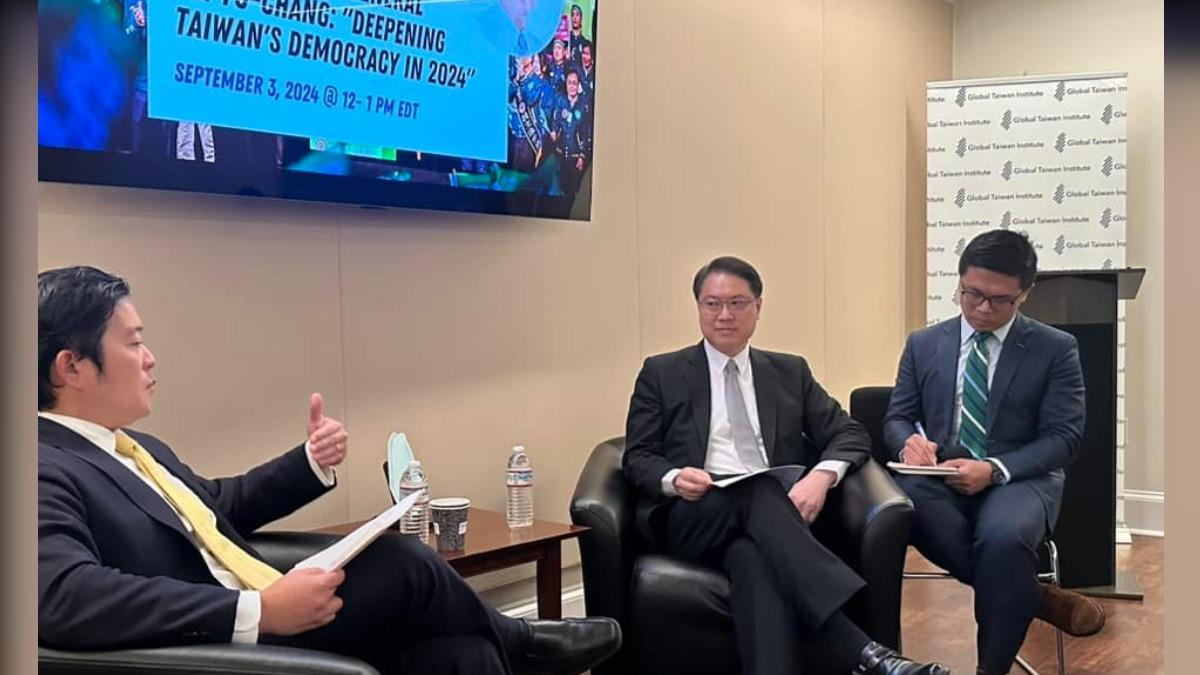WASHINGTON (TVBS News) — Democratic Progressive Party (DPP, 民主進步黨) Secretary-General Lin Yu-chang (林右昌) affirmed on Wednesday (Sept. 4) the U.S. trusts President Lai Ching-te (賴清德) and that communications between the two countries are at their best. Lin made these remarks during a speech at the Global Taiwan Institute (GTI, 全球台灣研究中心) in Washington, D.C., where he discussed deepening Taiwan's democracy.
Lin aimed to represent DPP Chairman Lai in expressing gratitude to overseas Taiwanese for their support. He also planned to meet with U.S. government officials and think tanks. Lin emphasized the trip's goal of seeking U.S. support for Taiwan's international space and discussing the country's current situation.
Responding to a Financial Times report suggesting U.S. officials are nervous about President Lai's lack of diplomatic experience, Lin dismissed it as election-period political maneuvering, stating that Taiwan-U.S. communications are very smooth currently.
Regarding the DPP's loss of its majority in this year's legislative election, Lin noted that no party can govern forever in a democratic society. He pledged that the party would work harder to earn the support of the Taiwanese people. Lin attributed the loss to public dissatisfaction with governance and the emergence of the Taiwan People's Party (TPP, 台灣民眾黨), which affected vote distribution.
Lin will engage with the Taiwanese community at the Taiwanese Presbyterian Church of Washington (華府台灣基督長老教會) on Wednesday night. After Washington, he will visit Houston, San Francisco, and Los Angeles. He clarified that the trip remains straightforward and will not involve contact with the Democratic or Republican parties ahead of the U.S. presidential election.



